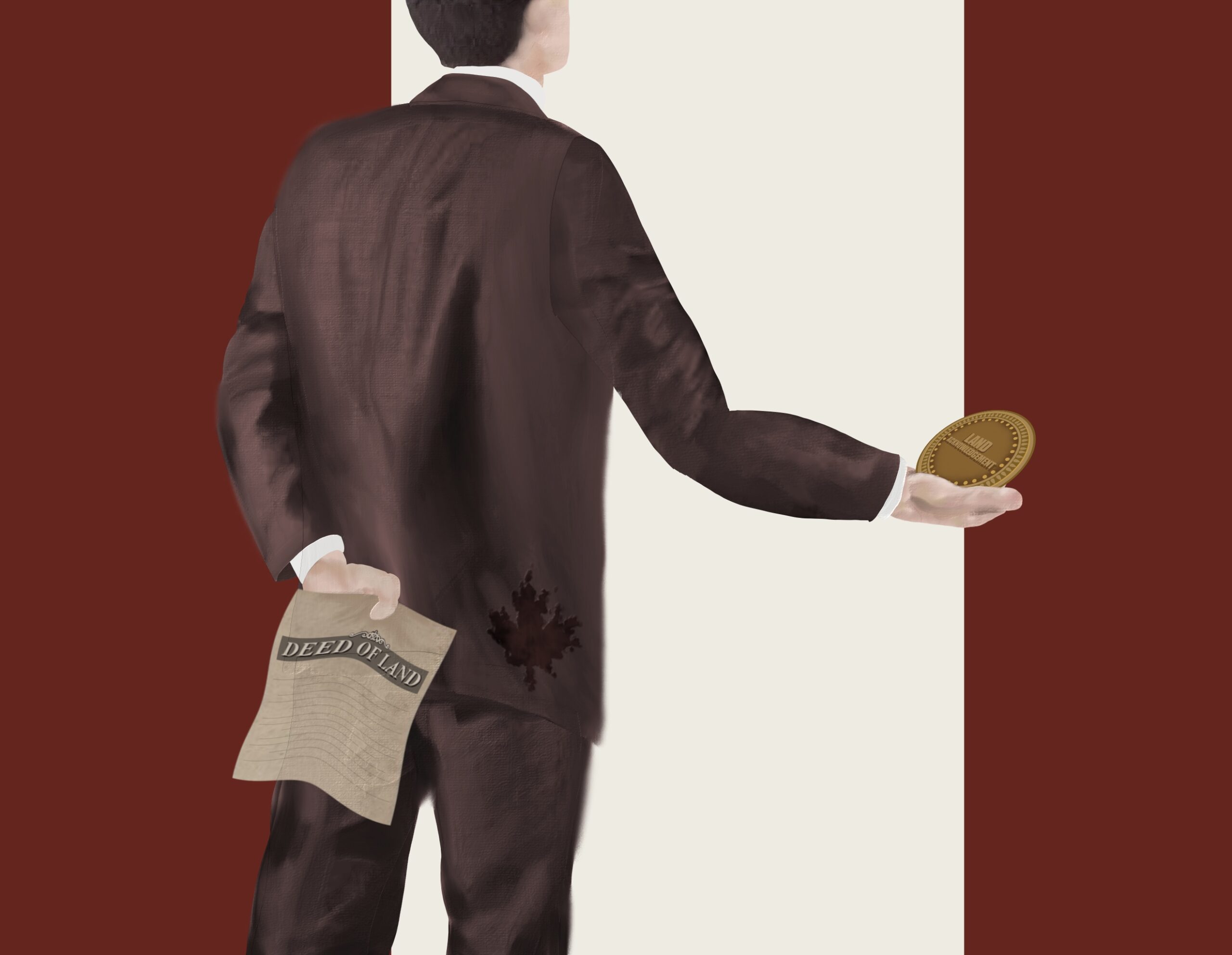Land acknowledgements and tokenism
In one ear and out the other: land acknowledgements are performative and empty gestures.
“What’s that?”
This was my Indigenous coworker’s response after I asked him what he thought about land acknowledgements. In his thirties, born and raised in Mississauga, he had no idea what they were.
I was perplexed and thought he was playing a joke until his cousin told me she had never heard about them either until a couple of years ago at her kid’s school concert. Even after I explained what they were, he said he had never heard about these statements before.
This affirmed my belief that land acknowledgements are not only performative and empty gestures, but they don’t serve the Indigenous community as much as we think they do. My experience taught me that not even Indigenous people know what land acknowledgements are. So does that mean we are doing a good job by including them in our next speech, or should we be doing more? In Canada, there seems to be an apparent disconnect from Indigenous realities and whether land acknowledgements genuinely serve a greater purpose than just a moral apology.
We’ve grown up reading land acknowledgements in signatures of corporate emails and hearing them in morning school announcements, city council meetings, and graduation ceremonies; but do we really know how to help Indigenous communities aside from honouring their history and land? Have we meditated on more productive measures to address and rectify our country’s brutal colonial history and present?
Unfortunately, the answer is no. Let’s face it: our responsibility is to think about Indigenous peoples and acknowledge their history—at least until the next public event. But are we working to resolve the perpetual issue of missing and murdered Indigenous women? Are we concerned that even though Canada has the world’s third-largest freshwater reserves, more than 600 First Nations communities still don’t have clean and safe drinking water?
Last month, I attended a friend’s graduation. The convocation invited an Indigenous performer on stage before the ceremony to sing and perform an honour song. Her boyfriend, who I was sitting next to, made belittling comments during the performance while all I could think of was how honoured I was to experience it. It upset me that he could not see the significance of this moment or appreciate its cultural richness. Instead, he undermined something deeply meaningful for many people, not just Indigenous communities.
His attitude reflected a broader issue of ignorance toward Indigenous culture and made me wonder if more exposure to Indigenous cultural aspects could resist this dismissive attitude. Many of us do not support or even properly address Indigenous communities because all we were taught were land acknowledgements and colonialism’s terrible impacts via outdated textbooks. We were never given the opportunity to appreciate and celebrate Indigenous culture, which, in return, has made us regard them as outsiders in their own country, leaving us entirely unaware of how to uplift them.
One thing that has resonated with me is a statement I heard in a documentary I watched in class last year. Though I cannot recall the name of the film, the documentary featured Indigenous families sharing their experiences facing systemic racism in the child welfare system. One woman shared something I will never forget—if a person from a country like Greece wanted to learn more about where they’re from, they could just visit Greece and surround themselves with its culture, but if an Indigenous person wanted to learn more about their heritage, they have nowhere to go.
It is undoubtedly important to recognize Indigenous groups and express commitments to honour and support Indigenous rights, but the problem is that we are simply doing nothing beyond acknowledging the impact of colonization. We should not only hold our government accountable, but ourselves, and act beyond just our words.
Thus, it is our responsibility to advocate for and work with Indigenous communities, but to also act and think beyond just land acknowledgements to adequately support Indigenous communities and celebrate Indigenous culture.
We can go a step further than merely acknowledging the land we are on by including links in our email signatures to Indigenous-led charities dedicated to supporting Indigenous communities. Here are some other things we can do, big or small:
- Host a book night or start a book club that celebrates Indigenous authors and analyze, reflect on, and enjoy Indigenous text.
- Host a movie night and watch Indigenous-made films: here’s a list of movies with Indigenous actors and stories.
- Donate to Indigenous-led non-profit organizations like Cultural Survival that are dedicated to helping Indigenous communities around the globe.
- If you are hosting an event, dedicate a few moments for attendees to learn and donate to Indigenous-led charities and organizations.
- Shop from Indigenous-owned businesses.
- Attend Indigenous events, seminars, and workshops to be more informed about Indigenous history, culture, and conversations.
- Create more scholarships and education opportunities for Indigenous students.
- Share Indigenous-founded platforms such as podcasts, YouTube channels, and other social media pages on your social media accounts.
For a country with a history marked by colonization, forced assimilation, violence, broken treaties, cultural erasure, and systemic discrimination, Canada has done little to genuinely adhere to the needs of Indigenous peoples. Instead, it has often opted for superficial gestures of acknowledgment that deflect responsibility rather than addressing the profound injustices faced by these communities. To genuinely connect with and support Indigenous communities, whose land and resources we consistently rely on, we must think beyond land acknowledgements into more productive and ambitious calls for action.

